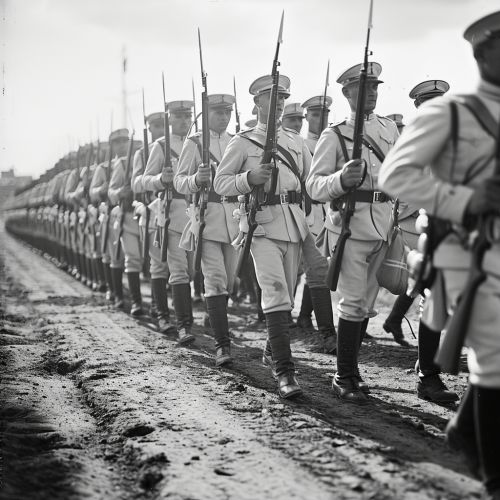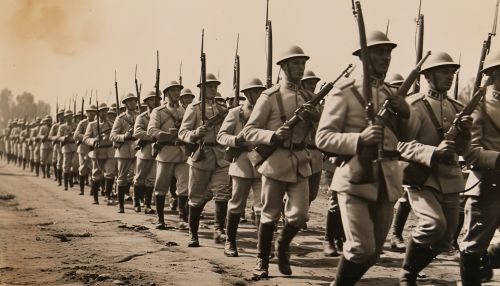White Movement
Origins
The White Movement, also known as the White Army or the Whites, was a loose confederation of Anti-Communist forces that fought the Bolsheviks, also known as the Reds, in the Russo-Civil War (1917–1922) and, to a lesser extent, continued operating as militarized associations both outside and within Russian borders until roughly the World War II.
Ideological Foundations
The White Movement was not a united force. Rather, it was a collection of factions with differing aims and ideas. These included monarchists, conservatives, liberals, and socialists who opposed the Bolsheviks. The common thread uniting these disparate groups was their opposition to the Bolshevik seizure of power and the radical changes they were implementing in Russian society. Many Whites also saw the Bolsheviks as traitors for their withdrawal from World War I.
Military Campaigns
The military campaigns of the White Movement were primarily directed against the Bolsheviks, with the aim of restoring the old regime or establishing a new one. These campaigns were characterized by a lack of coordination and strategic planning, which ultimately contributed to their failure.


Political Goals
The political goals of the White Movement were varied and often contradictory. Some factions sought to restore the monarchy, while others aimed for a democratic republic. There were also those who wished for a return to the old order, with its class hierarchies and privileges.
Legacy
The legacy of the White Movement is complex and controversial. In Russia, it is often associated with counter-revolutionary forces and is viewed negatively. However, in some emigre communities, the Whites are seen as heroic defenders of the old Russia against the Bolshevik onslaught.
